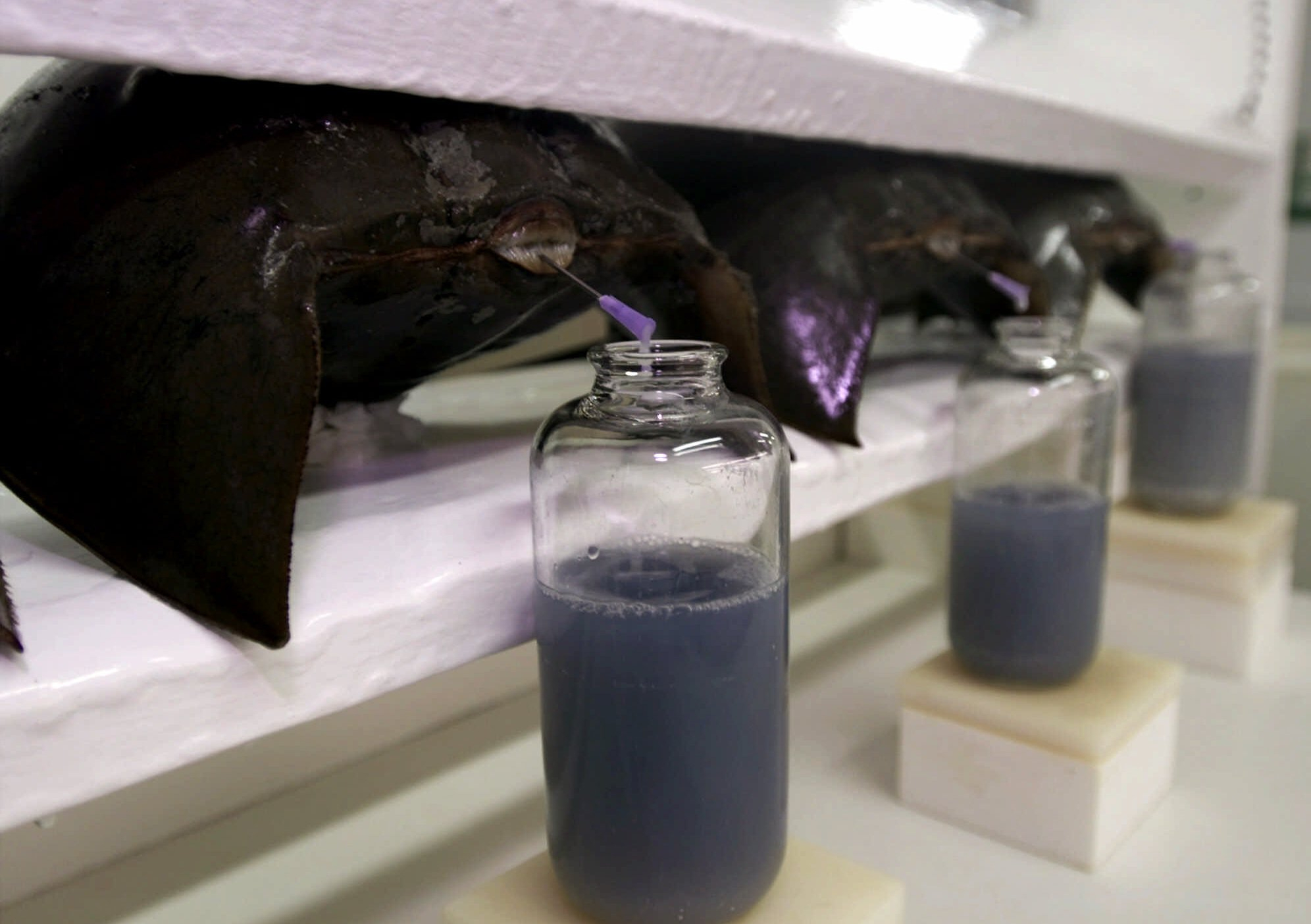The oldest horseshoe crab fossil is 445 million years old. Horseshoe crabs are older than dinosaurs and known as living fossils. An asteroid impact did not kill them, but they could become extinct because of their distinctive blue blood.
Within horseshoe crabs' bodies, oxygen goes through with copper present in hemocyanin, which makes their blood blue. Apart from the color, their blood is unique due to the ability to detect toxins in bacteria.
The blood is applied to identify an infection in anything that might go inside human bodies like medicine, medical devices and vaccinations.

The blood of horseshoe crabs. /AP Photo.
The blood of horseshoe crabs. /AP Photo.
Each year more than 500,000 horseshoe crabs in the United States have to "donate" 30 percent of their blood before returning to the wild. Studies show that this blood harvesting will kill between 5 and 20 percent of them. Bait collection, habitat loss, and global warming are also great threats.
Modern medicine no longer relies on the sacrifice of an ancient animal thanks to advanced technology. Recombinant Factor C (rFC) is a synthetic substitute for horseshoe crab blood making the animals no longer necessary in medical research. Scientists at the National University of Singapore, Ling Ding Jeak and Bo How, contributed to the development of an animal-free endotoxin detection technology.
Experts believe that given the equivalent efficacy and proven reliability, rFC will become the dominant method of detecting infection, and horseshoe crabs will not need to be sacrificed.
Fossils are preserved remains, impressions, or traces of any once-living thing. Studying fossils helps us understand the evolution of living things and determine the age of their formation. On Earth, there are countless creatures and, after they die, their stories will be told through fossils.
(If you want to contribute and have specific expertise, please contact us at nature@cgtn.com.)